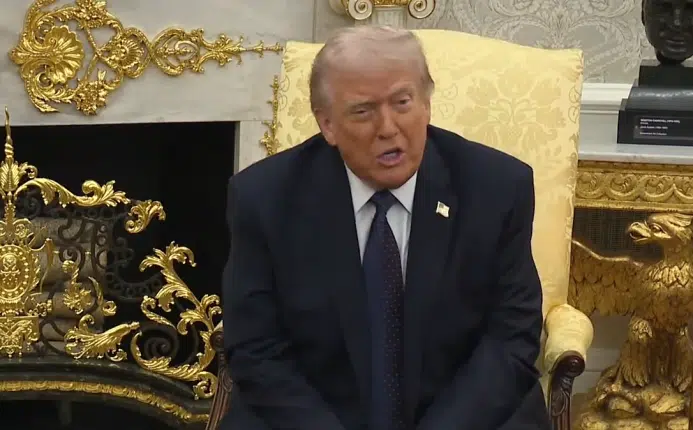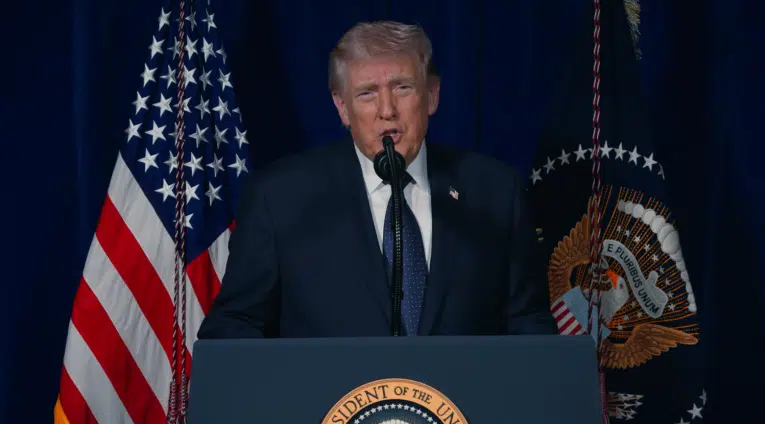 By Rick Manning — One of the advantages of living in the Washington, D.C. area is that occasionally you are privy to conversations by decision makers or news broadcasters which cast a light on how these elites are thinking.
By Rick Manning — One of the advantages of living in the Washington, D.C. area is that occasionally you are privy to conversations by decision makers or news broadcasters which cast a light on how these elites are thinking.
I had the good fortune to overhear one of these conversations recently, and I was not surprised that they agreed upon the premise that the budget deficit really wasn’t that big of a deal.
It is to these three conversationalists that I dedicate the rest of this column.
In order to proceed, a few facts need to be established.
Fact: The government has $16.4 trillion dollars in debt.
Fact: The U.S. Department of Commerce’s Bureau of Economic Analysis reports that the entire size of the U.S. economy is $15.9 trillion dollars.
Fact: The government debt to GDP ratio is 103 percent.
Fact: The U.S. Department of Treasury reported that the national debt increased by just less than $1.1 trillion in Fiscal Year 2012.
Why does this matter?
Liberal economists, like Paul Krugman, admit that our current U.S. economy is “suffering depression conditions” in spite of massive deficit spending and extremely aggressive monetary policy over the past five years. Their answer is for the federal government to engage in even more stimulus spending on top of the more than $5.2 trillion increase of publicly held debt since Obama took office.
And it is on Krugman’s analysis that federal deficits don’t matter and government should spend at an accelerated growth rate to get the economy moving that many journalists and others hang their hats.
However, two separate economic studies indicate that a nation’s economy actually is harmed and out of control federal government spending may actually be causing the “depression conditions” associated with the jobless economic recovery.
In a study published by the National Bureau of Economic Research economists Carmen Reinhart of the University of Maryland and Kenneth Rogoff of Harvard University concluded that when advanced economies like the U.S. reaches a debt to GDP ratio of more than 90 percent, the economy grows 1 percent slower than when it is below that level.
A separate study entitled, “The real effects of debt” by Stephen G. Cecchetti, M.S. Mohanty and Fabrizio Zampolli published by the Bank for International Settlements in Basel, Switzerland came to a similar if not more dire conclusion stating, “Our results support the view that, beyond a certain level, debt is a drag on growth. For government debt, the threshold is around 85 percent of GDP. The immediate implication is that countries with high debt must act quickly and decisively to address their fiscal problems.”
If Reinhart, Rogoff, Cecchetti, Mohanti and Zampolli are to be believed, then the United States economic growth is actually being retarded by the national debt that exceeds 103 percent of GDP, and it would be expected that continued expansion of the national debt would have an even more deleterious impact on the economy’s ability to grow.
However, the effect of a nation’s debt to GDP is not just a theoretical debate, it can affect the nation’s credit rating, and presumably the willingness of outside nation’s and financial institutions to purchase that country’s debt without being paid a higher interest rate to account for the increased risk of default.
Moody’s Investment Services warned that the United States faces a potential credit rating downgrade in a September 2012 statement warning, “If those negotiations lead to specific policies that produce a stabilization and then downward trend in the ratio of federal debt to GDP over the medium term, the rating will likely be affirmed and the outlook returned to stable.”
The nation’s credit rating plays a role in the interest rate that a nation is forced to pay in order to entice investors to purchase its debt. The more risky the debt, the higher the interest costs, and a nation’s credit rating signals to investors the relative risk of the debt.
As interest rates rise, the amount of money that a government is forced to allocate toward interest payments on the debt also increases, taking resources either out of the private sector through taxes or away from government services that suffer cutbacks.
U.S. News reported that Erskine Bowles, a co-chair of the president’s bipartisan deficit-reduction commission, recently called the nation’s interest payments on the debt one of the biggest long-term challenges facing the United States saying,
“We’ll be spending over $1 trillion a year on interest by 2020. That’s $1 trillion we can’t spend to educate our kids or replace our badly worn-out infrastructure.”
To put $1 trillion of payments on the debt into perspective, last year the total revenues of the United States government were just over $2.4 trillion.
Ultimately, that is why both the left and the right should be deficit hawks. Whether you want to dramatically limit the size and scope of government, or want to have the flexibility to expand services in the future, the national debt and the interest payments associated with that debt loom as a black cloud.
What’s more, as interest payments on the debt climb, they will consume more and more of the nation’s government spending causing the snowball effect of creditors becoming less willing to finance the debt without being paid a higher interest rate. This is the interest cost acceleration that has trapped countries like Greece in an economic vice that is almost impossible to recover from without default.
In answer to those journalists who were hypothesizing that the national debt really didn’t matter that much, the answer is clear.
Yes it does. It matters because the greatest fiscal crisis that will face our nation in the next decade won’t be Medicare spending or Social Security, it will be whether we should refuse to pay the banks and nation’s who own our debt or severely cut back on all government services in order to make our minimum payments that are due.
Failure to confront this issue today, only ensures that it will be exponentially harder to deal with it in the future.
That is why getting our fiscal house in order now really does matter, and why budget hawks are pushing for immediate and dramatic action, before the credit markets take the choice out of our lawmakers’ hands, the way they have in other countries around the world.
Our nation has solved much more difficult issues in the past, but whistling past the graveyard pretending that the national debt interest payment time bomb will never explode is not just foolish, but represents the height of irresponsibility.
The only question is whether Congress and the President will act today under our own terms, or be forced to act within the next decade under terms dictated by our creditors.
This generation of lawmakers will be judged by history on this singular question, as it will define the relationship of the United States with the rest of the world for the rest of the first half of the 21st century.
Yes, the debt matters. To put it in the words of former Vice President Chaney, it matters “big time.”
Rick Manning (@rmanning957) is the Vice President of Public Policy and Communications for Americans for Limited Government.






